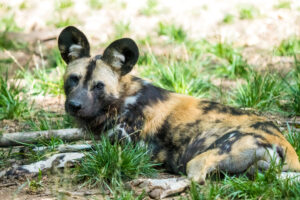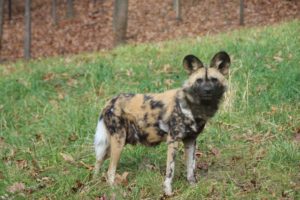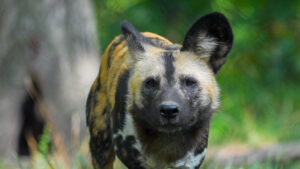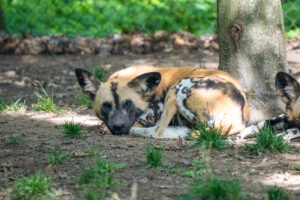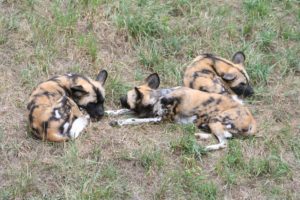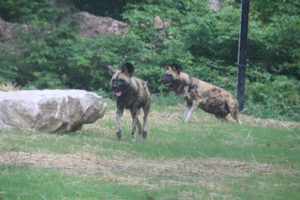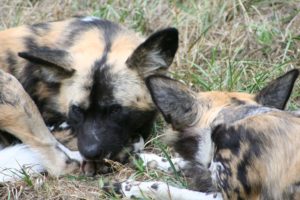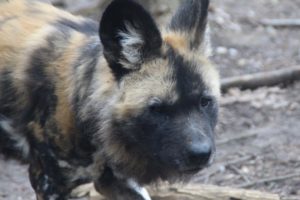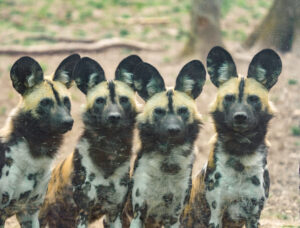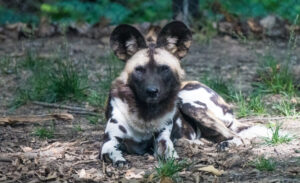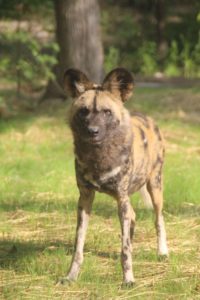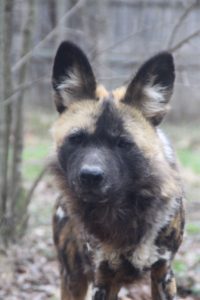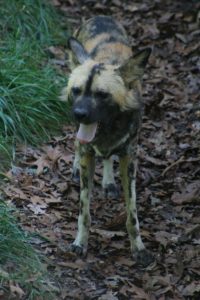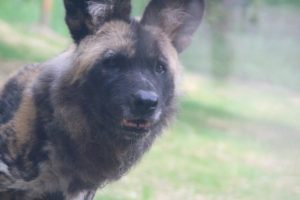African Painted DogLycaon pictus
Conservation Status: Endangered
Population of only about 6,600 in the wild, which is declining; habitat fragmentation; conflict with humans; and disease

Learn More
Color:
Spotted coat; irregular yellow, black, and white markings; dark muzzle, white tail tip
Size:
27.6” at shoulder
Weight:
39.7 – 79.4 lbs
Average Lifespan:
10 years
Captive Lifespan:
Up to 17 years
Many areas, most of which are very small, in eastern Africa and the Sahel (where the Sahara Desert transitions into the African savanna)
Savanna, lightly wooded country
Mating:
January to May, a dominant breeding pair amongst the pack are usually the only ones to mate.
Gestation/Incubation:
60-80 days
Litter/Clutch Size:
Varies, average is 8 but can range from 2-20 pups
Mature:
12–18 mos
Small to medium sized antelopes; Thomson gazelles; young wildebeests; impala; hare; zebra
Sociable and form packs of up to 40 members, although the average pack size is between 7 and 15. Packs are led by a dominant male and female pair.
1. Hunt mainly in the mornings and evenings
2. All members of the pack help raise young. They regurgitate food and relinquish kills when pups are able to follow the pack.
3. The scientific name Lycaon pictus, means “painted" or ornate wolf
African painted dogs are the most endangered carnivores in Africa. Binder Park Zoo is home to a pack consisting of two females and two males. African painted dogs have a firm pack structure, with an alpha female leading the pack. Our females are Sassy and Nyasi. Our males are Picasso and Pollack.

